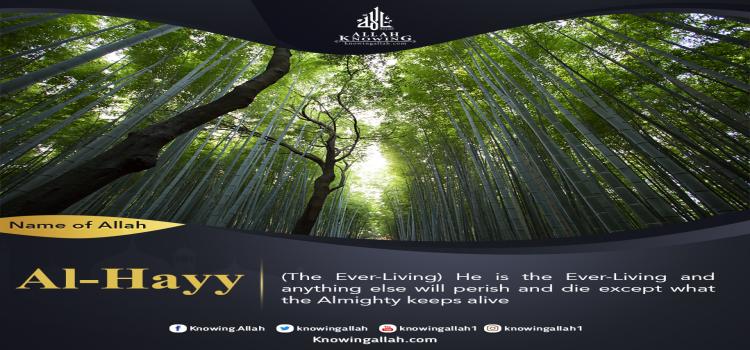HEART: THE PUMP OF LIFE
Allah has created us and bestowed upon us with infinite number of favours. If man looks in his own body he will realize the extent of kindness of God. He will find his organs working 24 hours per a day, 7days per a weak without tiredness to keep his life.
Allah says in Quran
"If ye would count up the favours of Allah, never would ye be able to number them: for Allah is Oft-Forgiving, Most Merciful." (Quran 16:18)
"Verily, We created man in the best stature (mould)" (Quran 95:4)
Journey to the heart
The heart is one of the most important organs in the entire human body. It is really work as a pump, composed of muscle which pumps blood throughout the body, beating approximately 72 times per minute of our lives. The heart pumps the blood, which carries all the vital materials which help our bodies function and removes the waste products that we do not need. For example, the brain requires oxygen and glucose, which, if not received continuously, will cause it to loose consciousness. Muscles need oxygen, glucose and amino acids, as well as the proper ratio of sodium, calcium and potassium salts in order to contract normally. The glands need sufficient supplies of raw materials from which to manufacture the specific secretions. If the heart ever ceases to pump blood the body begins to shut down and after a very short period of time will die.
The heart is essentially a muscle (a little larger than the fist). Like any other muscle in the human body, it contracts and expands. Unlike skeletal muscles, however, the heart works on the "All -or-Nothing Law". That is, each time the heart contracts it does so with all its force. In skeletal muscles, the principle of "gradation" is present. The pumping of the heart is called the Cardiac Cycle, which occurs about 72 times per minute. This means that each cycle lasts about eight-tenths of a second. During this cycle the entire heart actually rests for about four-tenths of a second.
Make-up of the Heart
The heart is made up of four different blood-filled areas, and each of these areas is called a chamber. There are two chambers on each side of the heart. One chamber is on the top and one chamber is on the bottom. The two chambers on top are called the atria (say: ay-tree-uh). If you're talking only about one, call it an atrium. The atria are the chambers that fill with the blood returning to the heart from the body and lungs. The heart has a left atrium and a right atrium.
The two chambers on the bottom are called the ventricles (say: ven-trih-kulz). The heart has a left ventricle and a right ventricle. Their job is to squirt out the blood to the body and lungs. Running down the middle of the heart is a thick wall of muscle called the septum (say: sep-tum). The septum's job is to separate the left side and the right side of the heart.
 |
| Heart structure |
The atria and ventricles work as a team — the atria fill with blood, then dump it into the ventricles. The ventricles then squeeze, pumping blood out of the heart. While the ventricles are squeezing, the atria refill and get ready for the next contraction. So when the blood gets pumped, how does it know which way to go?
Well, your blood relies on four special valves inside the heart. A valve lets something in and keeps it there by closing — think of walking through a door. The door shuts behind you and keeps you from going backward.
Two of the heart valves are the mitral (say: my-trul) valve and the tricuspid (say: try-kus-pid) valve. They let blood flow from the atria to the ventricles. The other two are called the aortic (say: ay-or-tik)valve and pulmonary (say: pul-muh-ner-ee) valve, and they're in charge of controlling the flow as the blood leaves the heart. These valves all work to keep the blood flowing forward. They open up to let the blood move ahead, then they close quickly to keep the blood from flowing backward.
It's Great to Circulate
You probably guessed that the blood just doesn't slosh around your body once it leaves the heart. It moves through many tubes called arteries and veins, which together are called blood vessels. These blood vessels are attached to the heart. The blood vessels that carry blood away from the heart are called arteries. The ones that carry blood back to the heart are called veins.

Your body needs this steady supply of blood to keep it working right. Blood delivers oxygen to all the body's cells. To stay alive, a person needs healthy, living cells. Without oxygen, these cells would die. If that oxygen-rich blood doesn't circulate as it should, a person could die.
The left side of your heart sends that oxygen-rich blood out to the body. The body takes the oxygen out of the blood and uses it in your body's cells. When the cells use the oxygen, they make carbon dioxide and other stuff that gets carried away by the blood. It's like the blood delivers lunch to the cells and then has to pick up the trash!
The returning blood enters the right side of the heart. The right ventricle pumps the blood to the lungs for a little freshening up. In the lungs, carbon dioxide is removed from the blood and sent out of the body when we exhale. What's next? An inhale, of course, and a fresh breath of oxygen that can enter the blood to start the process again. And remember, it all happens in about a minute!
For every beat of your heart you should thank your God on this great favour and submit your will to him.
Sources:


